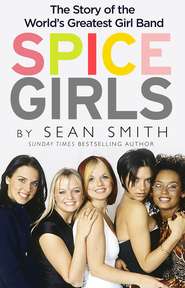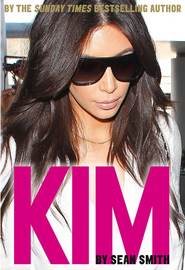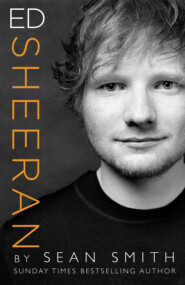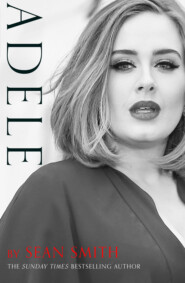По всем вопросам обращайтесь на: info@litportal.ru
(©) 2003-2024.
✖
Tom Jones - The Life
Настройки чтения
Размер шрифта
Высота строк
Поля
The first thing Vernon had to do was find their new frontman a suitable name. Tommy or Tom Woodward didn’t sound rock ’n’ roll enough in the days of Billy Fury, Adam Faith and Johnny Kidd and the Pirates. They decided to go to the Upper Boat Inn on the Taff River in Pontypridd for a few pints to try to come up with some ideas – they had none, despite the brain-lubricating beer.
Vernon then thought of looking in the telephone book for a name, and nipped across to a nearby phone box to have a quick search for inspiration. The problem with a Welsh phone book was that it contained page after page of people named Jones. Tommy Jones? That would never do, but his finger stopped at S when he reached Scott. Tommy Scott had definite possibilities.
Tom was enthusiastic when he returned to the table, as were the rest of the band, so Vernon went ahead and had some cards printed that read ‘The Senators with Twisting Tommy Scott’. It didn’t take them long to drop the ‘Twisting’ part, although Tom was a master of that popular dance.
Keith Davies remembers helping Tom with his Tommy Scott signature, so he would be ready to sign autographs should he be asked. Originally, Tom wrote his name in a very small and spindly fashion. Keith told him, ‘“You can’t write it like that. It looks like you’re signing the dole, like.” And I showed him, “Do a big S like this, and then put two big lines across the ts.” He tried it and said, “Like that?” and I said, “Yeah, like that.”’
A new name was the first step in smoothing out Tom’s rough edges to make him more acceptable to a paying audience. The next meant binning the beloved Teddy boy suit. It was the end of a long era, but Tom was persuaded to move on to black leather and a stage outfit that Elvis or Gene Vincent might wear.
One of Tom’s notable characteristics throughout his career is that he is amenable to change and suggestion. He doesn’t let ego get in the way of what he considers good sense. He accepts things and gets on with it. He wanted to look good, but what mattered most to him was the music he was going to sing. The biggest influence he had within the group was on their repertoire.
First and foremost, he wanted Jerry Lee Lewis. As Keith Davies remembers, the rest of the band would be mischievous about that: ‘He was just Jerry Lee Lewis orientated all the time. He would introduce a song by saying, “We would like to sing a song now by Mister Jerry Lee Lewis,” and we would all look surprised and go, “Jerry Lee Lewis???”’
Tom took the gentle ribbing in good spirit and was never less than dedicated. At their weekly rehearsals, they used to take it in turns to suggest a number to perform during their week-long round of gigs.
Keith recalls, ‘He would say something like, “I want to do a song called ‘Bama Lama Bama Loo’” and I would say, “Christ, what’s that?” It was usually something I had never heard of. Then it would be my turn and I would say I wanted to do “The Young Ones” by Cliff Richard, and Tom hated his music – he just didn’t like it. Every time I used to do the intro, you could see his face going. It was a soppy tune for him to sing!’
Tom had to grit his teeth and learn some of the more anaemic chart songs, because that was what their audience wanted. ‘He used to feel a prat doing it, but they were in the charts and people used to sing them.’
Tom was doing his homework though. Most Saturday afternoons, Vernon would go around to the house in Cliff Terrace, say hello to Linda and young Mark and then join Tom upstairs in his mother-in-law’s lounge and listen to records on his old portable record player. Tom and Vernon weren’t interested in rugby or football or social injustice – just music. They would spend hours talking about it.
Jerry Lee Lewis, of course, featured a lot in Tom’s expanding record collection. ‘Listen to the drums on this,’ he would say enthusiastically, as he put yet another of The Killer’s tracks on the turntable.
By a quirk of fate, soon after he joined The Senators, Tom noticed that his hero was performing a concert at the Sophia Gardens in Cardiff as part of his comeback. Tom had been disappointed four years earlier, when Jerry Lee, then twenty-two, cancelled his concert in Cardiff after revelations about his marriage hit the front pages. He had arrived in Britain for a six-week tour in May 1958, when journalists spotted a young girl in his entourage called Myra, who he said was fifteen and his third wife. That was bad enough, but she turned out to be his first cousin once removed and was only thirteen. Their union was a product of the hillbilly mentality prevalent in the Deep South. His management pulled Jerry Lee out of that tour after only three concerts. Tom recalled, ‘When the public found out about it, there was uproar and he got sent out of the country.’
Tom managed to get tickets in the front row for his hero’s return and would later reveal that it was his favourite musical performance ever. Jerry Lee did all his favourites, including show-stopping versions of ‘High School Confidential’ and an encore of ‘Good Golly, Miss Molly’. One critic described his act as ‘far and away the most exciting thing I have ever seen on a British stage’. Tom was mesmerised and would use that performance as a template for his own.
The night was made even more memorable when he spotted Jerry Lee’s car leaving, followed him in a taxi and jumped out to ask for his autograph when they stopped at a red light. The fact that Jerry Lee was happy to oblige under these slightly bizarre circumstances made a lasting impression on Tom. He has never underestimated the importance of fans and always made time for them when he became famous.
While Tom continued to be obsessed with Jerry Lee’s music, he did absorb the influence of other singers – chiefly great black artists with distinctive and soulful voices, including Solomon Burke, Ray Charles and, in particular, the rich tones of Brook Benton. The American singer had a breakthrough hit with ‘It’s Just a Matter of Time’ in 1959. Tom would listen intently to the way he used the whole range of his voice to carry a song. Play a Brook Benton song and you can easily imagine Tom singing it. Vernon admits that Tom had a much broader knowledge of music than the rest of the band and listening to records at his house was a musical education.
Tom was always keen to find new material, however. One day, after a rehearsal at the Y, he noticed that Keith was carrying a new record by Johnny Kidd and the Pirates called ‘A Shot of Rhythm and Blues’. Keith told him that it was fabulous, so they went to Cliff Terrace to listen. Tom loved it. ‘“Leave this with me,” he said. “I’ve got to learn the words and we’ll do it next time.” So I left it there and I never saw it again from that day to this.’
Tom improved dramatically as a performer with The Senators. He was more confident and didn’t just stand and sing. They used to do a version of the UK number one ‘The Twist’, by Chubby Checker, in which Tom would twist over to Keith and the guitarist would twist back to him. They were only messing about, but the crowd always loved it.
They had regular work and a supportive following. During these early days, they had no formal manager, but Horace Turner, the father of the drummer, Alva, helped them for the sheer enjoyment of it. He took no commission for sorting out their fees, bookings and regular work. On Tuesday nights, they played the Empress Ballroom in Abercynon; Wednesday, they rehearsed from 7 p.m. until 10 p.m., so they could make the pub for a beer before closing; Thursday, they travelled to Caerphilly for their favourite night of the week at the Bedwas Working Men’s Club, popularly known as the Green Fly; and Friday, they still had their usual alcohol-free night at the YMCA in Pontypridd. Many other local venues formed an orderly queue to sign them up when it became clear that they could fill the place. They played often at the Memorial Hall in Newbridge, known to everyone as the Memo, the Cwm Welfare Club in Beddau and the Regent Ballroom in Hopkinstown, on the west side of Pontypridd.
The band was being paid between £12 and £15 a night, which left them with £2 or £3 each after petrol and other expenses. Tom acquired a reputation for never putting his hand in his pocket to buy a drink. Vernon recalls with a smile, ‘The only way he would buy a drink would be if you turned him upside down and shook him.’ Keith also confirms, ‘I can’t remember too many times when he bought me a pint, put it that way. Nothing comes to mind.’
The reality of Tom’s situation was that he was the odd man out, because he had a wife and son at home and had to hand most of his wages over to Linda. He was still signing on the dole every week for his twelve shillings and sixpence. From time to time, he would take on a manual job, but, as Gill Beazer remembers, ‘He never really worked.’
On 26 May 1962, Tom had his first mention as a singer in the Pontypridd Observer. A young reporter called Gerry Greenberg had seen them rehearsing at the Wheatsheaf one evening and, because he was keen to be involved in the local music scene, decided to write about them. He recalls, ‘I thought he was a good singer, but back then I had nothing much to judge him against in terms of stars. He was a local singer and it was difficult to compare him to big stars.’ The paper published a small picture of the band on page three, with a caption that read: ‘The Pontypridd group who are making quite a name for themselves in modern music. Their soloist is popular Tommy Scott, Keith Davies on rhythm guitar, Alva Turner on drums, Vernon Hopkins on bass guitar and Mike Roberts on lead guitar.’
Three days later, Tom and The Senators appeared on television for the first time, on a BBC Wales show called Donald Peers Presents – not the catchiest of titles by today’s standards. Peers was a self-made man from the small mining town of Ammanford. He ran away from home at sixteen and became one of the most popular singers in the country. His signature song, ‘In a Shady Nook by a Babbling Brook’, was perfect for a singalong at the Wood Road on a Saturday night.
The TV show gave unknown local acts three minutes in the spotlight. Tom was firmly told that he had to tone down the gyrations for polite television. He chose to sing ‘That Lucky Old Sun’ – another Vaughn Monroe hit he had loved growing up. The producers were impressed and asked him to come back on a future show.
Tom bought a new eight-guinea suit to wear; that was a lot of money then. Keith Davies recalls, ‘I thought he was going to sing “Sixteen Tons”, but of all the songs they could have chosen for him to do, they decided on a Cliff Richard song, ‘I’m Lookin’ Out the Window’. At least he had the suit, which he had been measured for and everything, but the wardrobe mistress said, “You are not dressing in a suit.” So she gave him a pair of jeans, a red shirt and a tartan dicky bow tie. He looked like Rupert Bear. And he said, “I’m not wearing that.” So they came to a compromise and he wore the jeans with a red open-necked shirt.
‘I shall never forget him trying to keep a straight face as he sang “I’m Lookin’ Out the Window” to a window made of plastic. And what you couldn’t see on TV was a man up a stepladder with a watering can, pouring the “rain” down the window. It was hilarious. I was laughing so much Tom told me that if I carried on like that, I was going to have to bugger off.’
Tom didn’t add ‘I’m Lookin’ Out the Window’ to The Senators’ set list, but many of the songs, like ‘Sixteen Tons’, which he performed with them around the clubs of South Wales, would later feature on Tom’s albums. They used to open with the Ben E. King soul classic ‘Spanish Harlem’, which had been a hit in the UK charts in the summer of 1962 for Jimmy Justice and was another Tom would record in the future. The song let sceptical audiences know that they weren’t going to perform rock ’n’ roll exclusively.
One song he introduced to the set list was the powerful Sophie Tucker lament ‘My Yiddishe Momme’, which his father had taught him when he was a little boy and became a crowd favourite during his later live performances. On one memorable evening at the Wood Road, he sang ‘My Yiddishe Momme’ a cappella to his mother Freda. She loved the song and was in heaven when her son sang it for her.
Tom was very methodical about learning a new song. He played a disc over and over on the turntable until he had mastered the lyrics, then put his own phrasing on it in time for the Wednesday night rehearsal.
The greater exposure that 1962 brought led to the formation of The Senators’ own concert party. They were the headline act of an evening’s entertainment that was like a small-scale summer season at a seaside resort. They had a piano player, a girl singer and a comedian called Bryn Phillips, who was known as Bryn the Fish, because he had a fish round in Abercynon and smelled of haddock.
Tom’s stage presence was evolving more by luck than design. He would use a series of hand gestures to make sure the band was in perfect synch with him. Many of his powerful arm movements and body gyrations were code for the band and just as much for their benefit as for the watching audience. Quietly, The Senators were becoming less of a band in their own right and more Tom’s backing group. Gerry Greenberg remembers, ‘He was on a pedestal without anybody saying anything really.’
Gerry recalls watching them regularly at the New Inn in Taff Street. ‘Tom would sit downstairs having a drink while the band got the show going upstairs.’
Tom didn’t practise or warm up properly. His voice was nurtured on a diet of beer, cigarettes and curry. Young hopefuls starting off in music then weren’t particularly aware that you needed to care for your voice. As Vernon observes, ‘That was something opera singers did.’
On one occasion, Vernon suggested Tom should have a singing lesson with Brenda, the music teacher who lived next door to him in Rhydyfelin, to see if there was any advice he should be following. Tom dutifully agreed and popped round. At first Vernon could hear the familiar sound of la-la-la voices running up and down scales, and then it went dead quiet.
Eventually, Tom came back, red-faced and flustered. ‘You’ll never bloody guess, Vern. She sat on my chest.’
7
The Green Fly Boys (#u62725f21-d8e7-52b8-9c54-a268af863b50)
Tommy Woodward and Vernon Hopkins were kindred spirits united by a love of music and a desire to find a better life away from the terraces of the Valleys. They were also two young men, only a year apart in age, who enjoyed the company of women and wanted some adventure in their lives. Vernon, tall and dark, was probably the best looking of the two, but he acknowledges that Tom was better at talking to girls.
Linda came to a gig only occasionally, when she could leave Mark with her mother for the night. Most evenings, the lads would try their luck with the few girls hanging around to meet the band, but Vernon admits that their success rate was pretty close to zero. One of the band might get lucky every six weeks or so, which was hardly something to brag about to The Rolling Stones.
Vernon and Tom did manage to pick up a couple of air hostesses after a Saturday night gig in Ystrad Mynach, five miles from Pontypridd. They were so busy getting steamy with the girls in the car park that the others drove off, leaving them to make the long walk home. That would have been no problem if it hadn’t started to rain heavily. Fortunately, they found a shed to shelter under for the night. They managed to keep the girls warm until everyone fell asleep contentedly.
In the morning, the sun was shining and it would have been a lovely day, except that they were all covered from head to toe in pigeon shit. They had spent the night underneath a dovecote, but hadn’t noticed in the throes of drunken passion. The boys found it much funnier than the girls, who kicked them both very firmly in the shins as a thank you. The walk of shame back home was not a happy one, especially as nobody stopped to give them a lift.
Clearly, Tom wasn’t being faithful to Linda and, if the stories are to be believed, he has never been. She knew that. She heard the gossip. She felt uncomfortable seeing other women chatting up her husband and certainly didn’t want the knowledge of his philandering brought to her doorstep. Despite their success with the air hostesses, the Senators weren’t girl magnets, much as they would like to have been.
If there weren’t enough fast women around in the Valleys, then perhaps Tom would have better luck with a fast car. Vernon was astonished when Tom, who hadn’t even passed his test, turned up outside the house in a sparkling new scarlet Ford Corsair. It wasn’t his. The car belonged to his brother-in-law, Tony Thorne, who was married to Linda’s younger sister Roslyn.
He shouted, ‘Hop in, Vern. We’re off to Barry Island!’ They spent an hour or two sitting on the beach and eating ice cream. Vern told Tom that he was desperate to get away from Ponty; Tom was in whole-hearted agreement. They drove back happily, until Tom was pulled over by the police a few hundred yards from Tony’s house. The car had been reported stolen that morning. He had no insurance, as well as no driver’s licence. The matter inevitably reached the magistrates’ court and ended in a fine.
The escapade prompted Vernon to invest in a car of his own. His old Morris was nothing like the flash Corsair, but did come in useful occasionally, transporting the band to gigs. By late summer of 1962, the group had become friendly with a young engineer called Chris Ellis, who used to come and watch them at the Green Fly and would lend an expert hand if a piece of the equipment wasn’t working properly. He soon volunteered to be their roadie, and was responsible for setting up the gear at concerts and driving the van. He remained an integral part of the Tom Jones machine for more than ten years.
Tom was always the last to be picked up when they were travelling to a gig. He was never ready on time. One of the group would run over and bang on the grill with their heel and Linda would let them in. They would chat to Tom while he shaved in a small, cracked mirror that he had used for years. Then they would set off, all of them filled with anticipation, except for Tom. He would get in the back, lie down and fall fast asleep. He was a very deep sleeper. Vernon recalls, ‘Tom just used to lie there, out for the count. We always had a hell of a job waking him up when we arrived.’
The Green Fly continued to be the focus for events, both good and bad, in the story of The Senators. On one night, three of his old Teddy boy mates decided to drive over to watch Tom perform. The evening went well, the beer was flowing and Tom decided to catch a lift back with his friends. On the way, they were involved in a nasty collision, which left them all injured. Roy Nicholl had a broken jaw, Johnny Cleaves had a serious head injury and Dai Shepherd needed thirty-six stitches. Tom escaped with a bang on his forehead that gave him concussion and forced the cancellation of several gigs. They were all very lucky.
The band, and Tom in particular, were getting progressively more desperate for something to happen. They were stuck in a provincial rut. Most Tuesdays after collecting his dole money, Tom would drift into the Pontypridd Observer and chat to Gerry Greenberg. He was forever trying to persuade the reporter to include a mention of the band in his pop column ‘Teen Beat’. Gerry did profile Tom in the column, in which readers learned that Tom had green eyes and that his ambition was to perform with Jerry Lee Lewis; his principal dislike was sarcastic people. It was good exposure, but publicity in the local paper wasn’t going to be enough to get them noticed in London.
On one occasion Tom arrived at Gerry’s office with a badly cut mouth and swollen cheeks. Gerry recalls, ‘He was in a mess. He was struggling to speak, so I asked him, “What happened to you?” And he said the band were over at the Green Fly when they were jumped on by a gang. One of them jumped on him from behind and put his hands in his mouth and ripped it apart. I said, “God, that must have been painful, because you look in a right state.”
The Senators gave the impression of being a rough pub band, bashing out a series of rock ’n’ roll standards from the fifties. Out front, Tom cut an intimidating figure in a leather jacket. Behind him, the rest of the band incongruously wore blue blazers and white trousers. They were exciting, but they weren’t current. The Beatles had their first top ten hit, ‘Love Me Do’, in October 1962 and music was never the same again. The boys from Pontypridd were in danger of being left behind.










